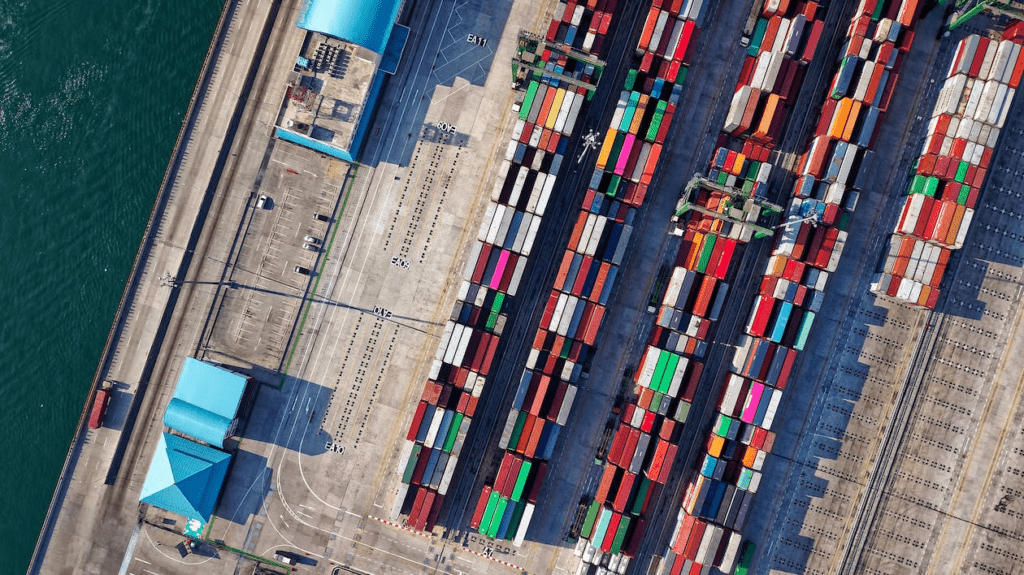Navigating the Middle East’s complex supply chain landscape can be daunting for any business.
As companies look to expand their operations in this region, they must be aware of who the top suppliers are and what unique value propositions they offer.
With an ever-evolving geopolitical climate and economic shifts, it’s no wonder that businesses need all the help they can get when sourcing products from this part of the world.

That’s where we come in – our team has put together a comprehensive guide on shedding light on some of the most reputable suppliers in the Middle East.
While compiling our list, we’ve considered factors such as reliability, expertise, and adaptability, so you don’t have to!
Stay tuned as we explore these industry leaders and help you make informed decisions about your next regional partnership or procurement endeavor.
Table of Contents
Navigating The Complex Supply Chain Landscape
Navigating the complex supply chain landscape in the Middle East is challenging for businesses seeking to source products and services from this region. Diverse markets, intricate regulations, and varying levels of economic development characterize the area. As such, it becomes crucial for organizations operating within these boundaries to possess an in-depth understanding of local market dynamics, establish strong relationships with reliable partners, and access lighting suppliers in Saudi Arabia when needed.
As a middle east supply chain analyst, one must be proficient in evaluating various factors that influence regional trade patterns, including political stability, infrastructure capabilities, and customs procedures. Additionally, cultural nuances play a significant role in shaping business practices.
For instance, building trust through personal connections is essential as it can lead to long-term partnerships and better access to resources. Moreover, being attentive to specific preferences or requirements driven by religious beliefs or social customs might have lasting impacts on achieving success in this part of the world.
A critical aspect of navigating the Middle Eastern supply chain landscape involves distinguishing between potential suppliers who can deliver quality goods while adhering to high standards of ethics and professionalism. Identifying reputable suppliers requires thorough research into their background and operations and assessing their capacity to meet your organization’s needs effectively.
Doing so minimizes operational risks and lays a solid foundation upon which future collaborations may thrive. With this groundwork, we shall now explore how you could identify reputable suppliers in the region more efficiently.
Identifying Reputable Suppliers In The Region
In a region as vast and diverse as the Middle East, identifying reputable suppliers can sometimes feel like searching for a needle in an endless haystack. Fear not; there are ways to navigate this complex landscape easily and confidently. By employing research methods, networking, and due diligence, you will soon be surrounded by reliable partners ready to meet your supply chain needs.
Firstly, conducting thorough market research on potential suppliers in the Middle East is essential. This includes examining their track record and financial stability, ensuring they possess proper certifications and licenses for their respective industries, and evaluating whether they adhere to international standards regarding quality management systems (e.g., ISO 9001) or environmental responsibility (e.g., ISO 14001).
Engaging local consultants or experts familiar with regional nuances can provide valuable insights into supplier reliability and overall performance.
With solid research under your belt, next comes building relationships within industry networks – both online platforms such as LinkedIn groups or trade associations specific to your sector – which allows access to firsthand feedback from peers regarding their experiences working with various suppliers in the region.
Establishing connections through face-to-face meetings at conferences, exhibitions or even casual business gatherings also fosters trust between the parties involved, which is particularly important when considering long-term collaborations that require mutual understanding and commitment.
As you continue strengthening bonds among key players within this intricate ecosystem, evaluating each supplier’s expertise becomes increasingly vital – paving the way towards making informed decisions based on robust data points rather than mere intuition alone.
Evaluating Reliability And Expertise
Evaluating the reliability and expertise of top suppliers in the Middle East is paramount for businesses looking to establish or strengthen their supply chain in the region. This entails assessing a supplier’s track record, financial stability, and technical capabilities to ensure that they can consistently meet your business’s demands. Moreover, it is essential to examine their adaptability concerning regulatory changes, economic shifts, and any potential geopolitical risks that may arise.
To provide depth and complexity when evaluating suppliers, consider these three key factors:
- Past performance: Investigate each supplier’s history of timely deliveries, consistent quality, and customer satisfaction.
- Financial health: Analyze balance sheets and liquidity ratios to determine if a prospective supplier has sufficient resources to withstand market fluctuations without affecting its ability to serve clients.
- Technical know-how: Evaluate the skillset of employees by reviewing certifications, accreditations, and innovation capacity; this will help gauge whether they possess the necessary knowledge base required for delivering on your specific needs.
It is crucial to assess these aspects individually and understand how they contribute collectively toward building a sustainable partnership with your chosen supplier. By doing so, you can mitigate risk effectively while ensuring long-term success within the region’s dynamic landscape.
With an understanding of reliable and capable suppliers, one must now focus on navigating through geopolitical and economic shifts throughout the Middle East.
Adapting To Geopolitical And Economic Shifts
In a striking parallel to the importance of evaluating reliability and expertise, understanding and adapting to geopolitical and economic shifts in the Middle East is crucial for businesses looking to thrive in this region. The area’s complex political landscape and fluctuating oil prices often lead to unpredictable market conditions. As such, identifying top suppliers necessitates assessing their capabilities and analyzing how well they navigate these ever-changing dynamics.

One key aspect that supply chain analysts should consider when studying top suppliers in the Middle East is their resilience amid regional conflicts and tensions. Suppliers who have demonstrated an ability to maintain operations even though disruptions are better positioned to ensure business continuity for their clients.
Additionally, companies that invest in risk management strategies such as diversifying sourcing locations or building robust logistics networks can mitigate potential adverse effects from unforeseen events.
Another important factor for organizations aiming to succeed in the Middle Eastern market involves monitoring economic trends and adjusting accordingly. This may involve scrutinizing currency fluctuations, exploring emerging industries beyond oil production, or considering renewable energy initiatives gaining traction within the region.
By staying informed about macroeconomic developments and demonstrating adaptability, top suppliers can enhance their competitive edge while fostering successful partnerships with clients with similar strategic objectives. Those seeking fruitful collaborations within this dynamic environment must remain agile and responsive – qualities best exemplified by exemplary providers capable of navigating unique complexities inherent to the Middle East.
Fostering Successful Partnerships
Fostering successful partnerships in the Middle East’s supply chain industry is crucial for businesses seeking a competitive edge. As this region continues its rapid growth and diversification, establishing strong relationships with top suppliers can improve efficiency, reduce costs, and increase innovation. Companies must prioritize open communication, trust-building activities, and mutual understanding among their partners to achieve these benefits.
A primary strategy for fostering successful partnerships involves proactively engaging with potential suppliers through networking events, trade shows, and online platforms. By actively seeking out new connections in the marketplace, companies expand their options and identify opportunities that might not have been apparent otherwise.
Additionally, businesses should focus on nurturing long-term relationships by conducting regular performance reviews and offering support when needed. This approach allows both parties to grow together while consistently meeting quality standards.
Identifying shared goals between the company and its suppliers is another important aspect of building effective partnerships. Aligning objectives creates a sense of purpose within the partnership; it enables all parties to work towards a common goal rather than competing against one another.
Moreover, incorporating supplier feedback into decision-making processes helps create an environment where continuous improvement thrives – ultimately benefiting everyone involved in the relationship. With such foundations laid down for successful collaborations, attention can then be turned towards streamlining procurement processes across organizations for maximum efficiency gains.
Streamlining Procurement Processes
Streamlining procurement processes is crucial to optimize supply chain operations’ overall performance and efficiency in the Middle East. One key aspect of this streamlining involves employing advanced technology solutions, such as artificial intelligence (AI), blockchain, and data analytics tools. These technologies enable accurate demand forecasting, real-time tracking, transparent stakeholder communication, and efficient supplier management.
There are a few notable ways that companies can streamline their procurement processes:
- Adopting digital transformation strategies
- Implementing e-procurement systems for centralized purchasing
- Utilizing AI-powered analytics tools to enhance decision-making capabilities
- Enhancing collaboration with suppliers
- Establishing long-term strategic partnerships built on trust and transparency
- Developing joint initiatives focused on continuous improvement
As businesses adapt these methods to their existing frameworks, they set themselves up for success by optimizing costs, reducing lead times, improving customer satisfaction, and maintaining high-quality standards.
This renders them competitive within the region and paves the way for sustainable growth in global markets. The next important consideration after streamlining procurement processes is ensuring sustainable and ethical practices throughout the supply chain ecosystem.
Ensuring Sustainable And Ethical Practices
As the Middle East continues to evolve as a significant player in global supply chains, ensuring sustainable and ethical practices becomes increasingly important. The region has made considerable strides in recent years, particularly concerning labor rights and environmental standards. As an analyst focused on the Middle East’s supply chain landscape, it is crucial to address these concerns and highlight the importance of maintaining responsible business conduct across all industry sectors.
One of the key areas where advancements are being made is workers‘ welfare. Governments in the region have recognized the need for improved labor regulations that cater to both local citizens and expatriate communities who make up a sizable portion of the workforce. Reforms such as wage protection systems, enhanced safety measures at work sites, and more transparent recruitment processes contribute towards a fairer working environment that benefits all parties involved.
Furthermore, initiatives promoting environmentally friendly operations help companies adhere to international best practices while minimizing their ecological footprint. These include policies encouraging efficient waste management systems, reducing greenhouse gas emissions through renewable energy sources, and implementing water conservation techniques.
The Middle Eastern market also presents unique opportunities for businesses committed to sustainability by capitalizing on its vast resources and growing consumer base. Organizations can increase competitiveness while contributing positively towards regional development efforts by demonstrating compliance with globally accepted social responsibility guidelines – such as those outlined in ISO 26000 or UN Global Compact Principles.
This creates a strong foundation for future growth driven by innovation rather than exploitation, allowing firms operating within this dynamic marketplace access unparalleled prospects for success when they combine their expertise with insights from local partners well-versed in navigating cultural complexities inherent throughout this diverse part of the world.
Leveraging Local Expertise For Global Success
Having discussed the significance of ensuring sustainable and ethical practices in the supply chain, it is essential to acknowledge that leveraging local expertise for global success remains a key factor.
As companies look to expand their operations worldwide, they need experienced partners who understand the complexities of regional markets. Top suppliers in the Middle East are well-positioned to offer valuable insights into cultural nuances, economic trends, and regulatory landscapes.
To maximize opportunities within the region and beyond, businesses should consider collaborating with these proficient players with extensive knowledge about various aspects of international trade. Some notable areas where local experts provide invaluable guidance include:
- Navigating complex customs regulations
- Identifying reliable shipping routes and logistics providers
- Comprehending regional market dynamics and consumer preferences
- Assessing Geopolitical risks affecting trade relationships
- Developing strategic partnerships with influential stakeholders
Embracing this wealth of experience will ensure seamless integration with regional networks and enhance overall operational efficiency. By tapping into their deep understanding of diverse industries, top suppliers can help navigate potential pitfalls while capitalizing on lucrative ventures unique to specific regions or sectors.
Their ability to adapt quickly to changing circumstances allows them to maintain a competitive edge – an attribute worth considering by any company looking for long-term growth prospects.
Without a doubt, partnering with leading suppliers from the Middle East offers numerous benefits that go beyond just cost savings or increased production capabilities. The collaboration enables businesses to leverage unparalleled sector-specific expertise, facilitating smoother expansion strategies across borders. This fosters stronger ties between organizations and paves the way for mutually beneficial outcomes – solid foundations upon which lasting success can be built in today’s fast-paced business environment.
Conclusion
In conclusion, navigating the complex supply chain landscape in the Middle East is akin to mastering the art of haggling in a bustling souk. With countless suppliers vying for your attention, finding that hidden jewel that can offer unparalleled expertise and reliability amidst an ever-shifting geopolitical and economic backdrop is crucial.
As a seasoned Middle East supply chain analyst, I urge you to hone your skills in identifying reputable suppliers, fostering successful partnerships, streamlining procurement processes, ensuring sustainable practices, and leveraging local expertise for global success.
In doing so, you will conquer this labyrinthine market and secure an enviable position on the world stage.



